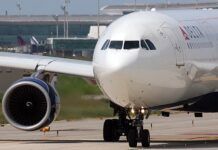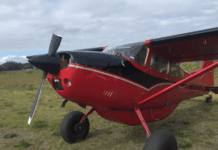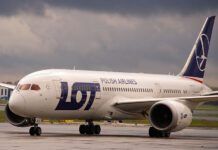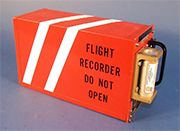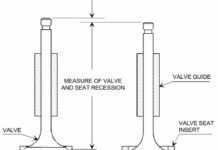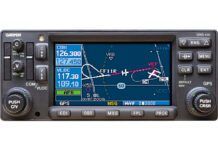While taking on debt isn’t without risk, it’s an option quite a few student pilots looking to start flight careers are examining. Loans remain one of the few ways to nail down the resources to see them through to earning their ATP. On that front, many college and university flight students have an advantage over students who train outside the university system: federal loans. The Flight School Association of North America (FSANA) is working on a program that they believe has the potential to change that.
As it stands, many students at college and university flight schools have access to federal financing through the U.S. Department of Education (DoED) as part of their regular financial aid packets. In addition to providing a fairly predictable and streamlined process, federal loans have some benefits that make them attractive, including interest rates that are often much lower than many private loan options available. That said, the DoED requirements do limit applicants primarily to U.S. citizens (there are a few exceptions).
However, being a college or university isn’t required for students to get DoED money. Accreditation is. Therein lies the sticking point.

Colleges and universities have their own accreditation processes, but currently there are no active accreditation programs for independent flight schools. On top of that, meeting the criteria for establishing a DoED-recognized accrediting organization isn’t exactly an easy thing to do. That’s where FSANA is looking to step in with its Flight School Accreditation Program.
FSANA opened the program for the first time in 2011. It was active for roughly three years before going on hiatus in 2014. During that time, just four schools, one of which closed permanently in January 2018, were accredited.
Now, the program is scheduled to open its doors again. According to FSANA CEO Robert Rockmaker, the association has added features to the program with DoED approval in mind. “We are again completing a review of the standards and plan to open the program within the next 60 days,” said Rockmaker. If all goes well, the estimated time for the DoED approval process for the program is 12-24 months.
The new accreditation program will have several differences from the original. First, it will be a two-tiered system. The highest level will be the DoED-recognized accreditation. Schools in this category will have the ability to accept students who have borrowed money using the DoED loan program. At this level, schools are required to provide annual audited financial statements in addition to meeting other program requirements.
The second level of accreditation is slightly less stringent. Yearly financial audits won’t be required and, as such, the schools won’t be eligible for the DoED funding mechanism. This secondary level will be open to all schools that meet FSANA’s accreditation standards. Rockmaker says the second tier will include foreign schools that would not be eligible for the DoED track regardless of accreditation.

The new program also differs from the original in that FSANA will not ultimately be the accrediting organization. They are in the process of establishing an entirely separate accreditation entity based on guidelines from the DoED. Until that entity is established, FSANA will be at the helm of the program. The association anticipates that the transition will be made some time in 2019.
FSANA says that most of the accreditation standards haven’t changed much since the program’s earlier days. They report having made some enhancements and added additional language, particularly dealing with two separate levels of accreditation.
The accreditation process itself focuses on seven “core” areas: Safety, Security, Risk Management, Business Practices, Finance and Accounting, Education, and Customer Satisfaction. Schools will also be expected to comply with the FSANA Code of Ethics. Rockmaker says that the accreditation standards will not specify any particular training program, although schools will have to report which program they use. In addition to submitting all required records and paperwork, accreditation also includes onsite facility inspections.
The accreditation is good for three years at which point it can be renewed. The schools previously accredited by FSANA’s program will be grandfathered into the new one, although they will all be subject to a three-year recertification requirement. The new accreditation standards have not yet been published, but the complete 2014 standards and Code of Ethics can be viewed here (PDF). When asked about expected participation in the program, Rockmaker said that FSANA estimates between 50 and 100 flight schools in the United States will decide to pursue accreditation.
According to Rockmaker, funding access is one important goal for FSANA’s accreditation program, but it’s not the only one. He also spoke extensively about the importance of creating a program that helps to identify schools that promote a safe, ethical culture both in the cockpit and on the business front. He emphasized that flying an aircraft is a vocational skill where the number-one objective is to have pilot consistently operate in a safe fashion.
Most of FSANA’s programs and services are available to members only, although membership will not be required to participate in the accreditation program. FSANA also hosts a yearly Flight School Operators Conference, sends out a free monthly e-newsletter, and is working to develop an active youth program through AeroCamp and other initiatives.
FSANA held its first meeting in the spring of 2009 at Atlantic Aviation in Philadelphia, Pennsylvania. The not-for-profit trade association’s stated objectives include increasing the pilot population, serving and fostering the flight training industry, and providing programs and services for flight schools. FSANA currently has approximately 300 members and about 100 member schools. Annual dues for schools range from $150-$350 and are based on number of aircraft in the school’s fleet. The cost of an individual membership is $100.
For more information about the Flight School Association of North America, visit FSANA’s website or contact them at 610-791-4359 or [email protected].


















